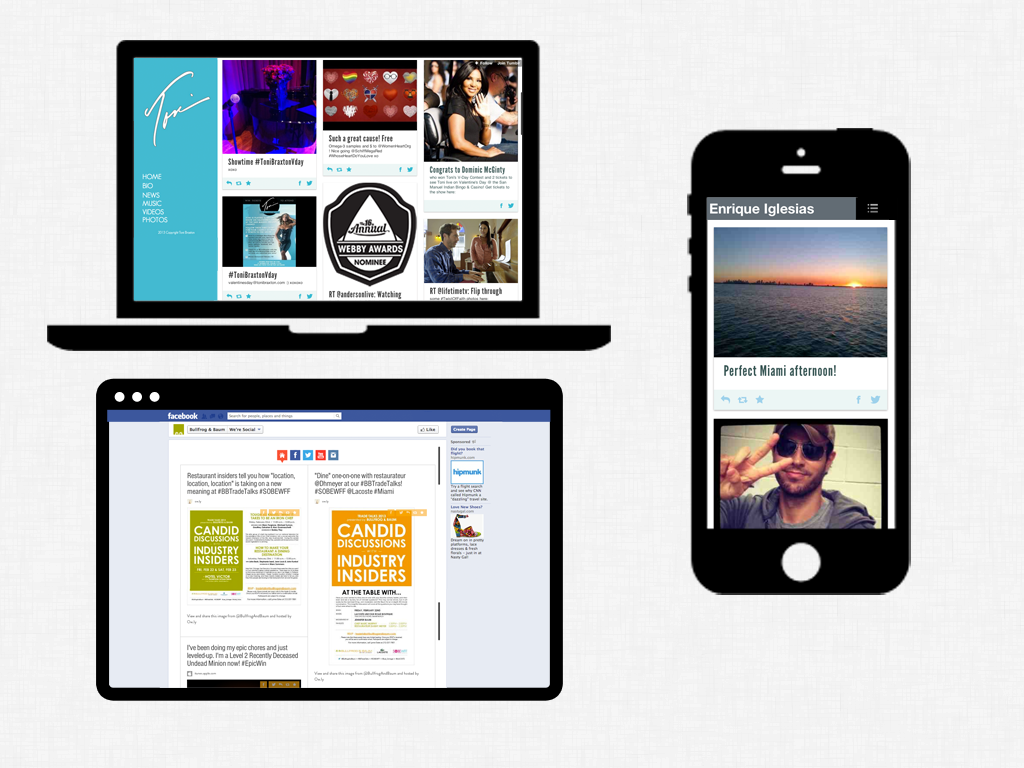3 Reasons Why You Should Integrate a Social Hub onto your Brand Properties
February 21, 2013 | By David A. George | No Comments">No Comments
This is a guest post by Tim Sae Koo, CEO of Tint, a simple tool that has helped thousands of brands create social hubs on their brand properties and increase their sales as a result.
Many of us brands today spend a ton of our time engaging with our audiences on social media by creating and sharing relevant content with them.
We share beautiful photos on Instagram, hilarious videos on Youtube, clever tweets on Twitter, and engaging news on Facebook.
But what can you do with that content after it’s been shared and received some likes and comments?
![]()
Instead of just letting it fizzle down your timelines, brands today are looking into bringing all their and others social feed activity back onto their websites, Facebook Pages, and mobile apps to extend the post’s reach/life and engage their visitors with great content.
This is what you call social hubs.
After seeing many brands integrate their social media feeds onto their properties, we have heard from many of them say that it has been a great way to convert more leads into sales. How is that possible? 3 simple reasons.
1) You can get more traffic.
When you integrate social feeds onto your site, you’re essentially providing your audiences fresh, real-time content to explore. The more relevant the content, the more your visitors will want to revisit your site to consume the content.
And what’s great is that visitors do not need to visit each of your individual social channels for this content anymore. They can land on your site for all your content within your site and refer their friends to check it out on your site.
More traffic means more leads and more potential sales.
For example, I’ve seen small restaurants integrate their social media feeds onto their site so they can direct all their customers on there to discover everything they need to know about the brand, including their social activity.
2) You can get visitors to spend more time and lower your bounce rate %.
Let’s say you figure out ways to generate traffic to your site through direct referrals, SEO, or paid ads, but all that won’t matter if you don’t offer relevant content to these visitors. They will exit your site within a matter of seconds and not even give your business a chance to sell itself.
You could spend hours each day manually updating your site with content, but that is inefficient and expensive. That’s why brands integrate their social media content onto their site because new content will be updated automatically.
That increases the chances for people to stick around and consume the content, and ultimately explore more of your site to learn more about your brand.
Some examples I’ve seen have been e-commerce sites incorporate social feeds on their front pages. And the type of content isn’t just theirs; it includes fashion bloggers feeds to offer a wide array of content. On average, they see an increase of 20% time spent on site and a 12% decrease in bounce rate %.
3) You can create a sense of trust with your audience.
If you can offer visitors great content, not only will they come back and stay longer on your site, but they will also trust your brand more. It is no wonder that in a recent study run by a large social marketing firm, over 50% of website visitors prefer to do businesses that integrate social media on their sites.
This makes perfect sense because if you can give your visitors a helpful, fun, and engaging experience, they start to perceive your brand as helpful and trustworthy.
I’ve noticed retail shops’ sites integrate a social hub filled with what their customers are sharing about them on social networks. This is a risky move, but new customers take notice as brands are transparent and want to show what others are saying about them.
If you are interested in trying this yourself, use Heyo to build your landing pages, Facebook apps, and mobile apps. Then use Tint to create & integrate social hubs onto them.
Your Turn
Seen brands integrate social hubs onto their sites? What did you think? Have you done one for your own site? Let us know in the comments below!


